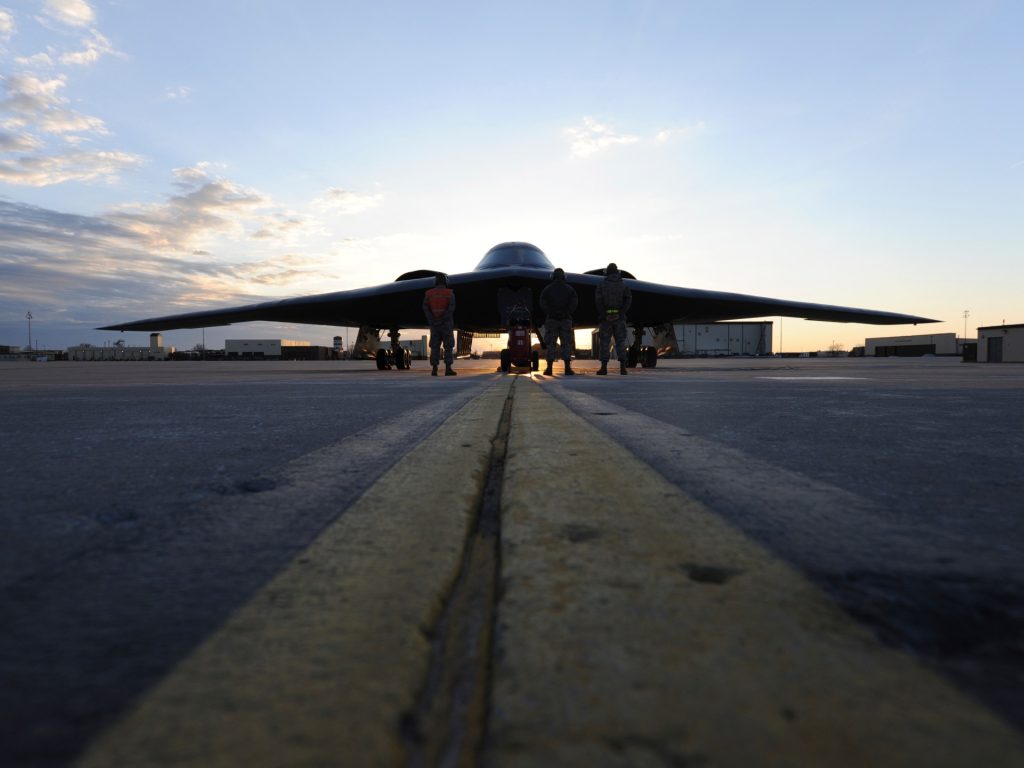US Defense Secretary Lloyd Austin says strikes aimed at countering Houthis’ ‘destabilising behaviour’.
The United States military has bombed a series of Houthi targets in Yemen, the US defence chief has said.
US Air Force B-2 bombers conducted “precision strikes” against five underground weapons storage locations in Houthi-controlled areas of the country, Secretary of Defense Lloyd Austin said on Wednesday.
The strikes targeted “hardened” underground facilities used to store weapons components of the kind used by the Houthis to target civilian and military vessels in the region, Austin said.
“This was a unique demonstration of the United States’ ability to target facilities that our adversaries seek to keep out of reach, no matter how deeply buried underground, hardened or fortified,” Austin said.
“The employment of US Air Force B-2 Spirit long-range stealth bombers demonstrate US global strike capabilities to take action against these targets when necessary, anytime, anywhere.”
Austin said Houthi attacks continued to disrupt international trade, and he had ordered the strikes to “degrade the Houthis’ capability to continue their destabilising behaviour and to protect and defend US forces and personnel in one of the world’s most critical waterways”.
US Central Command said in a separate statement that its damage assessment did not indicate civilian casualties.
The Iran-backed Houthis have carried out more than 100 missile and drone attacks on ships in the Red Sea since the start of the war in Gaza.
The Yemeni group has cast its attacks as a show of support for Palestinians facing Israeli bombardment, although it has also attacked vessels with no obvious connection to the war.
The US latest bombing raids come a day after the United Nations special envoy for Yemen, Hans Grundberg, warned that the country was at risk of being dragged further into the military escalation in the Middle East.
While Yemenis “yearn” for peace, hopes for an end to escalating violence in the region “seem distant”, Grundberg told the UN Security Council.
“Now, like many in the Middle East, their hopes for a brighter future are falling under the shadow of potentially catastrophic regional conflagration,” he said.

